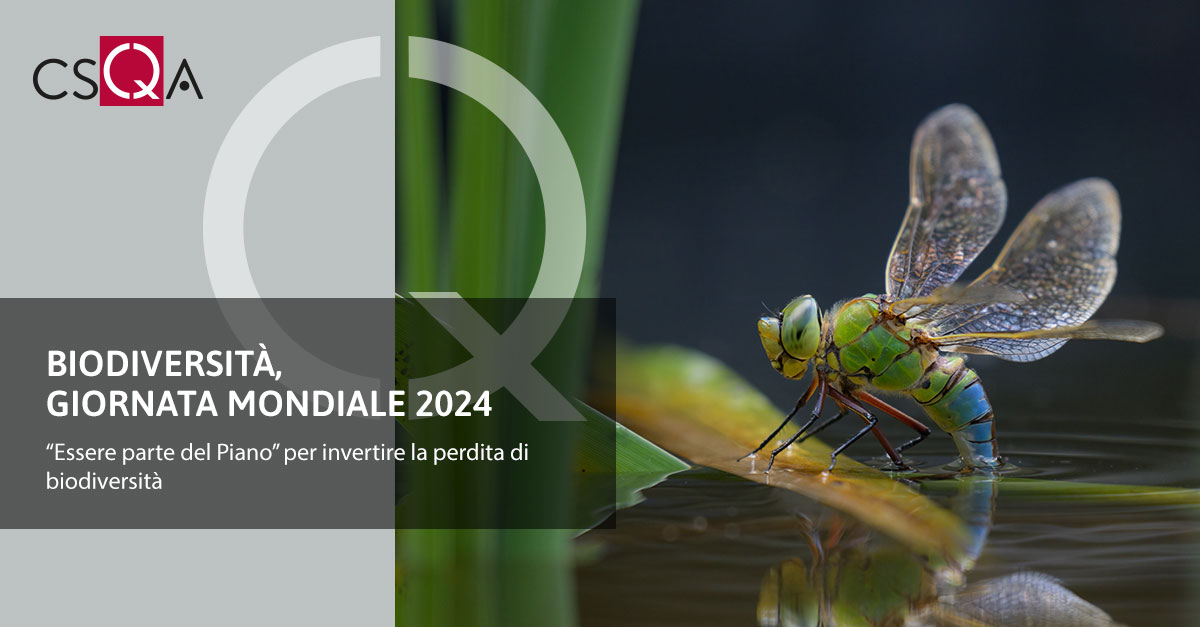 May 22nd is World Biodiversity Day proclaimed by the United Nations to celebrate Biodiversity, the richness of life - at the level of ecosystems, species and genes - on our Planet.
May 22nd is World Biodiversity Day proclaimed by the United Nations to celebrate Biodiversity, the richness of life - at the level of ecosystems, species and genes - on our Planet.“Being Part of the Plan” is the theme chosen in 2024 to celebrate this day, and is a call to action for all stakeholders to halt and reverse biodiversity loss by supporting the implementation of the Kunming Global Biodiversity Framework- Montreal.
The Cop15 on biodiversity in Kunming in 2022 has set new global objectives on the protection of biological diversity for 2030. But a concerted effort is needed to reach these goals .
Governments, indigenous peoples and local communities, non-governmental organisations, legislators at various levels, businesses and individuals. Everyone can and must be “part of the plan”, contributing in different ways to reverse the ongoing trend of severe biodiversity loss.
Why is World Biodiversity Day 2024 celebrated?
Biological diversity is one of the pillars on which the functioning and prosperity of our societies is based. Dismantling it, little by little, pushes us towards unexplored territories: exactly as happens with the global increase in temperatures.
Ecosystems are complex mechanisms and it is difficult for us to predict exactly how they may change with the extinction of some species or even just the decline of some populations.
This year, World Biodiversity Day 2024 tries to keep the attention of politics and society alive on this issue , which experienced a short season of greater media exposure and attention from governments during Cop15.
Last year the body that organizes World Biodiversity Day, the CBD (the Convention on Biological Diversity) presented a plan to achieve the objectives set by Cop15. And avoid it ending up like the previous targets, with a horizon of 2020: we have failed them all.
Protecting biological diversity is as crucial as fighting the climate crisis
What we know is that biodiversity is something we should care about at least as much as the climate crisis – with which it is inevitably intertwined.
Let's also think only from an anthropocentric perspective: fish provide 20% of animal proteins to around 3 billion people, over 80% of the human diet is provided by plants, around 80% of people living in rural areas of countries developing countries rely on traditional plant-based medicines for primary healthcare.
And we also know that we are witnessing – and largely responsible for – a mass extinction event. According to IPBES , the international scientific body that monitors biodiversity, in 2100 1 in 8 species worldwide will be at risk of extinction.
And today there are half a million "dead walking species" , species that still exist but are condemned to disappear in a few decades due to the degradation or destruction of their habitats.
Last year, a study systematically reviewed the number of species at risk – drawing on data for European species and extrapolating to a global scale, an effective methodology for getting around data gaps – concluding that it is double what was estimated in 2019 by the IPBES itself: 2 million.
A key point of this study was the inclusion of estimates for insects, which are usually left out. It is important because the trends for insects indicate that the ongoing loss of biodiversity is at catastrophic levels.
In 2021, a series of 12 studies published simultaneously in PNAS shed light on this area, concluding that we are facing an "apocalypse": 1-2% of individuals die every year. “Severe insect declines have the potential to have global ecological and economic consequences,” the authors warned.
Then there are the aspects more related to health, to which we should now be sensitive after having experienced the Covid-19 pandemic. “The loss of biodiversity threatens everyone, including our health”, underline the organizers of the World Biodiversity Day 2024. “It has been shown that the loss of biodiversity could expand zoonoses – diseases transmitted from animals to humans – while, of on the other hand, if we keep biodiversity intact, it offers excellent tools to fight pandemics such as those caused by coronaviruses." (Source: https://www.rinnovabili.it/ )